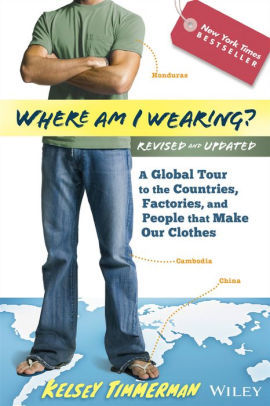Sustainability Reading List for September & October
- Nicholas SirLouis

- Sep 4, 2020
- 3 min read
Updated: Mar 11, 2021
Here is the second installment of our reading list. The quest to create a more sustainable and just world is incredibly nuanced, encompassing a baffling amount of facets to consider. This is why becoming well-versed in a variety of topics is crucial - and the best way to do so is by reading. The following books touch on different subjects in different manners, all with something important to say.
The Story of Stuff by Annie Leonard

In the United States, we consume at a dizzying rate. The US holds only 5% of the world's population, yet consumes 30% of the world's resources and creates 30% of the world's waste. Doesn't seem to be a good model to follow, right? Annie Leonard explored and investigated the ins and outs of the materials economy, exposing how harmful our over-consumption is to people and the planet alike. A thought-provoking book to get our wheels turning on why we consume and what we actually need. The Story of Stuff was originally a documentary, available to watch on https://www.storyofstuff.org/.
Staying Alive: Women, Ecology, and Development by Vandana Shiva

Vandana Shiva is a world-renowned environmental activist working on issues like food justice, feminism, and colonialism. Her book Staying Alive links the oppression of nature to the oppression of women (ecofeminism), and explores how the ideology of 'development' is inherently exploitative, leading the world down a very dark path. Shiva explains her stance that the only remedy is the liberation of women and men to live in a sustainable, diverse world. Shiva weaves her way to this notion by examining the unique position women hold in relation to nature (namely in India) and by analyzing the revolutionary approaches women are taking in ecology movements.
The Omnivore's Dilemma by Michael Pollan

Michael Pollan begins with the seemingly simple question of "what should we have for dinner?" To answer this, Pollan investigates the different food chains available to us: industrial agriculture, organic food, and foraging/self-growing. With this, a detailed picture of food and eating in the United States is painted. Questions of whether or not we should eat in a certain manner, why we eat like we do, and where should our food come from, are raised and explored. The scientific and journalistic approach taken by Pollan inherently becomes philosophical, and for good reason. We should really think about what's for dinner, because the implications stretch farther than the eye can see.
Where Am I Wearing? by Kelsey Timmerman

Kelsey Timmerman takes an investigative storytelling approach to our material world, somewhat similar to other books listed, but focusing upon the fashion industry and how a consumerist, globalized world has shaped it. Timmerman seeks to humanize the faceless industry by sharing the experiences of people who make our clothes from around the world. The book implores readers to think critically about where their garments come from, who made them, and whether these people are being treated ethically. Our world economy must be improved to serve the many, not the few.
The Ecology of Freedom:The Emergence and Dissolution of Hierarchy by Murray Bookchin

The Ecology of Freedom begins with a simple assertion: “The very notion of the domination of nature by man stems from the very real domination of human by human.” Bookchin's seminal work incorporates the science of ecology, the study of anthropology, and political theory to explore the development of hierarchies and freedom through human history. Making its way to a critique of modern globalized capitalism, Bookchin asserts that the only path to achieving a sustainable and just ecological world is to create a free and democratic society - his theory of social ecology. More mainstream environmental movements are criticized, as they are said to only seek changes inside of an inherently unsustainable system. The book is hefty, but a read well-worth your time and thoughts.
You'd better get started!





Comments